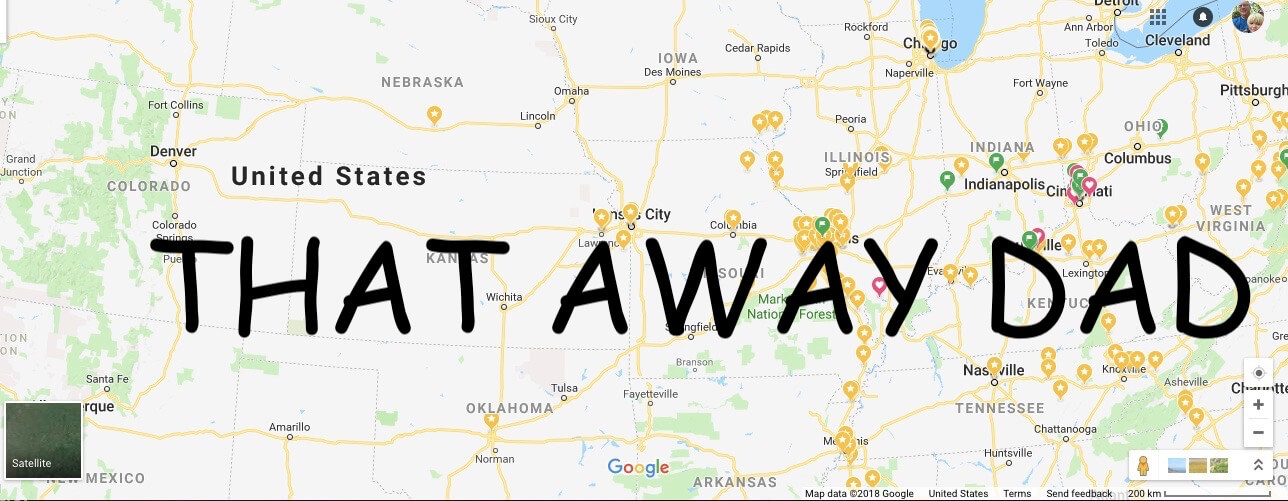Take a short hike among sugar maple trees, by a pond, and through prairie grass at Claire Gempp Davidson Memorial Conservation Area.
Come here with the kids they can learn about the natural world with the many information signs and tree identifiers.
The walk is .6 mile with a 16-foot elevation gain along a wood chip path with a boardwalk.
This area serves as an outdoor classroom for Lindbergh School District students.

Beginning the Walk
I found the start of the Nature Trail by a sign on the north side of the parking lot and then saw a woodchip path.

Sugar Maples
Sugar maple trees grow along this part of the trail. A sign here explains how the sugar maple trees have become more prevalent throughout Missouri due to the lack of naturally burning fires. In the fall the trees produce maple syrup that is made by boiling down their sweet sap.

Next, I went by an old piece of machinery in the woods on the left. However, there was no information about its use.

I came to an intersection without a sign and started to go to the right finding it ending at green grass leading to Southview School. This was the wrong way and headed back to the left.

Boardwalk
Following the trail around I came to a boardwalk over a section of a pond. If it was warmer weather you might see frogs and turtles on logs in the water. A sign by the boardwalk provides more information about the aquatic world.

Prairie
After the boardwalk, I came to an area of prairie grasses. Originally this area had been a cow pasture.
Now you will see native grasses and wildflowers. Prairie plants are a source of nutritious food and leaves, seeds, nectar, and pollen for a whole array of wildlife.

Post Oak
Along the path, I came to a large tree, which is a post oak. Deer, turkeys, squirrels, and other rodents eat the acorns that fall from the tree.

Chimney Swift
Next, I came to a shingled tower. Built to attract chimney swift birds, which are endangered by the loss of habitat.

Sundial
Next, I came across a circular stone mount with a metal point coming out of it, which is a sundial. It is the earliest type of timekeeping device.
The sundial indicates the time of day by the position of the shadow of the dial exposed to the sun’s rays.
As the day progresses, the sun moves across the sky, causing the shadows of the dial to move indicating the passage of time.

Back to the Start
I followed the path to the right heading back to the parking lot on the south side.
Near the parking lot, I saw a wooden box with a glass front filled with garbage. This was some of the trash that has been picked up in the conservation area.
At the bottom it says that the disintegration of a glass bottle will be around a million years or a plastic bottle for 450 years, explaining the importance of not littering and recycling.

Final Thoughts
I enjoyed my time in the woods exploring the boardwalk and paths.
Along with the main wood chip path, there are natural surface paths that go throughout the middle area of the conservation area.
After finishing the main hike I wandered around the paths going further into the prairie area and into the woods.

You can’t get lost since it is a small area. I only had to remember that the parking lot is on the east and the pond is on the west.
History
This 30-acre conservation area was conveyed to the Missouri Department of Conservation in 1992 under the will of Marjorie Elizabeth Gempp in memory of her sister Claire who died at age 26.

DETAILS
Drive: Take Interstate 270 to exit 3 and make a right onto Gravois Road and then make a left onto Sappington Road and look for the conservation sign on the left for the parking lot along the road before Southview School.
Hours: 7 a.m. – 7 p.m., Daily
Address: 9227 Sappington Rd, St. Louis, MO 63126
More Nearby Hikes

Emmenegger Nature Park: Hiking Along Bluffs and Creeks
The walk at Emmenegger Nature Park includes a path along creeks, climbing up bluffs, and seeing a former beer baron’s retreat.

Powder Valley Nature Center
Powder Valley Conservation Nature Center has paved trails for families to explore the woods crossing wooden bridges over small rocky brooks and streams.

Bee Tree Park: A Mississippi Bluff Fit For a Telephone Executive
A former telephone executive mansion, Mississippi River views, and a forested lake were part of my explorations of Bee Tree County Park in south St. Louis County.


